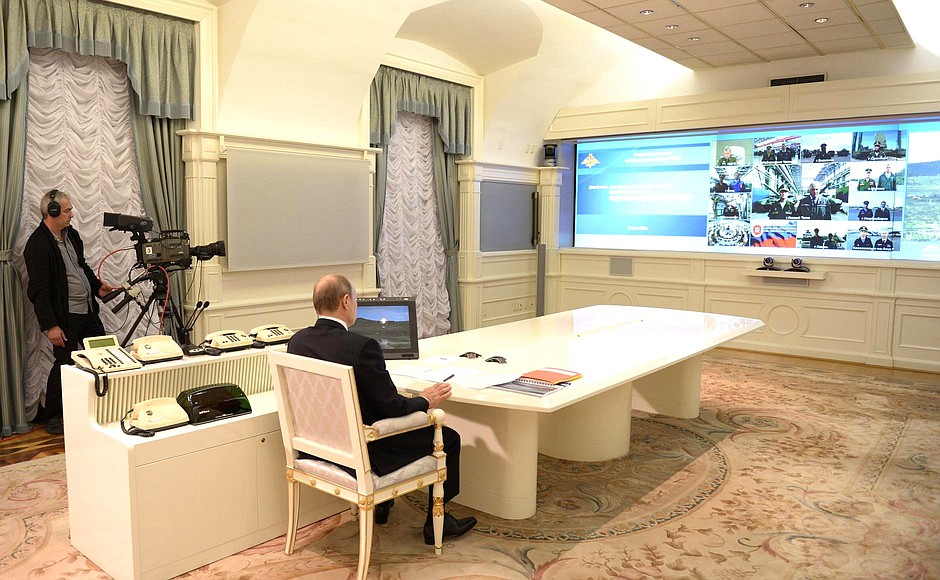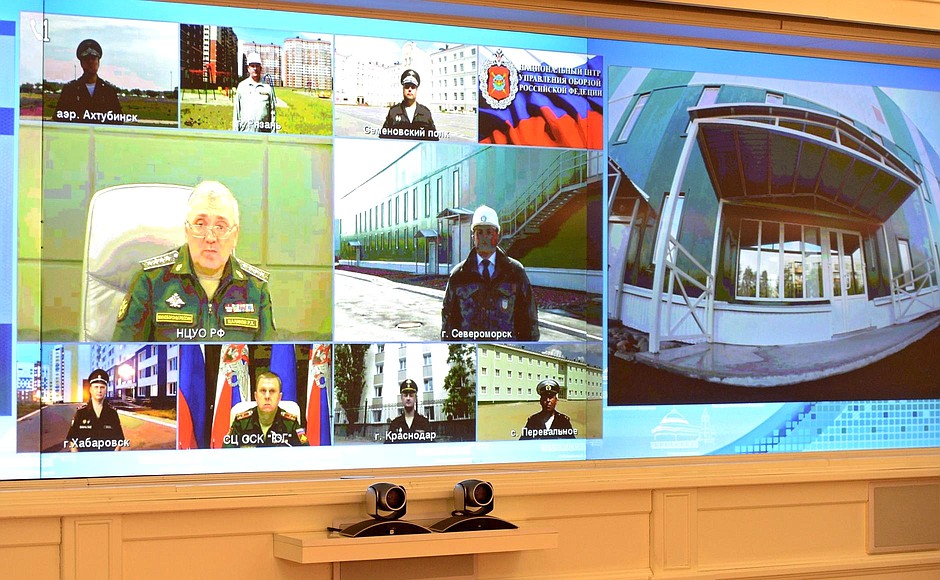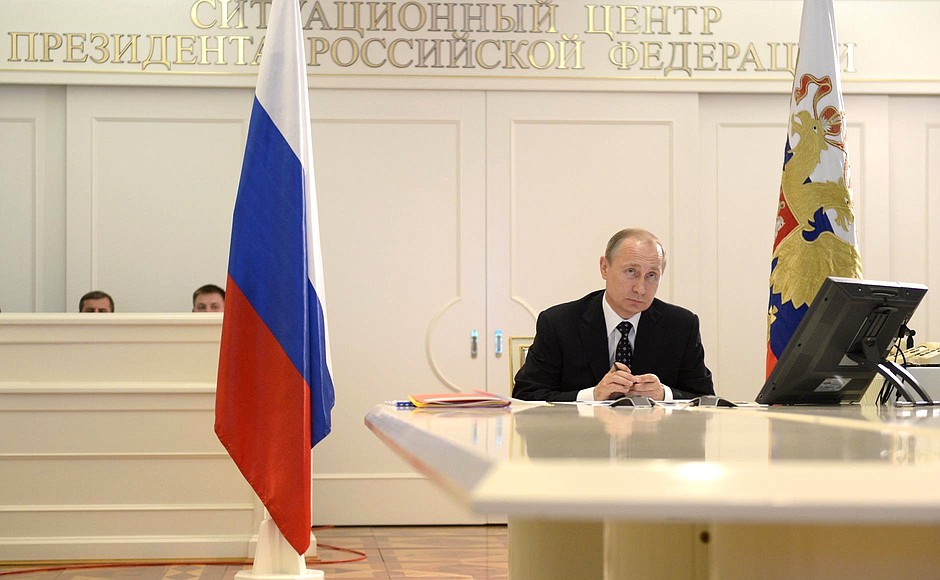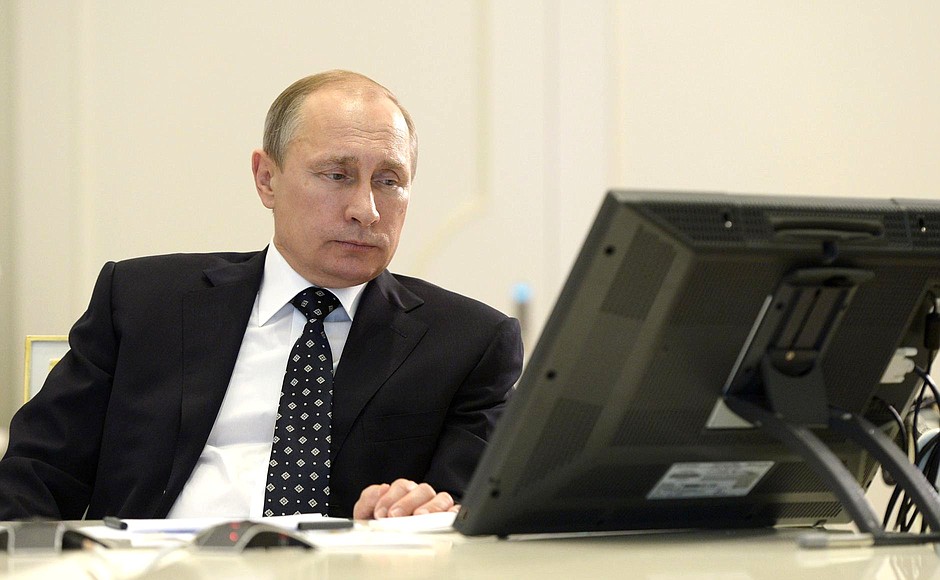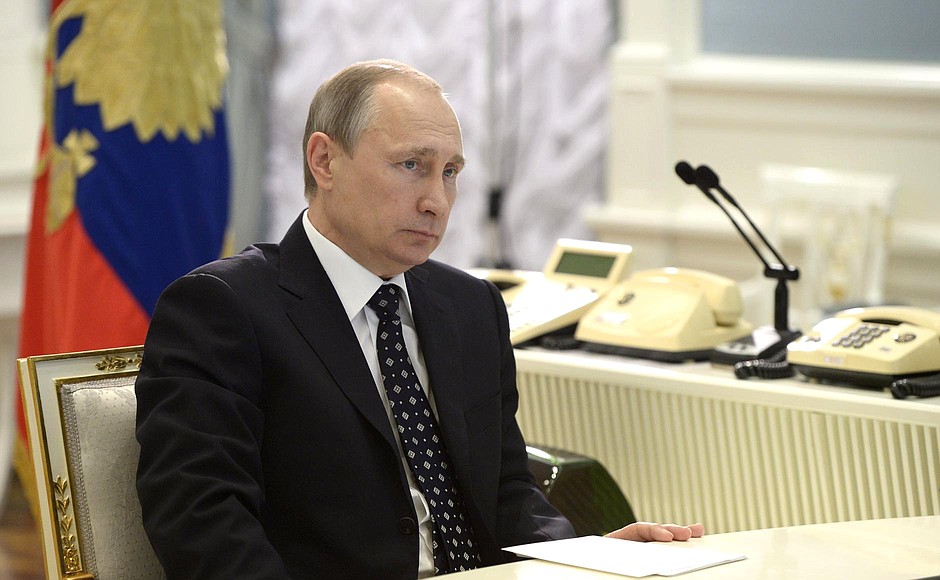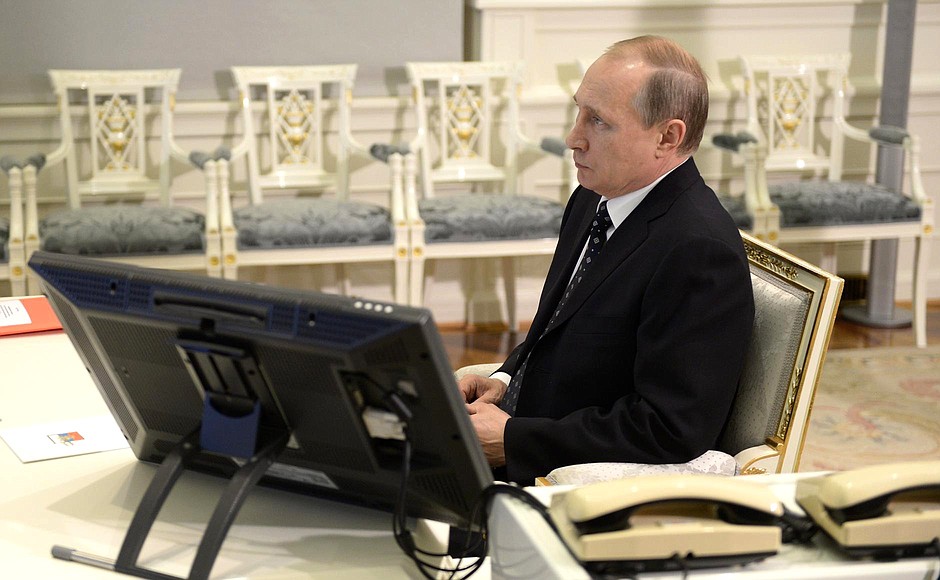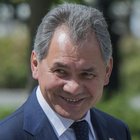The President heard reports from the Defence Ministry leadership and heads of the military industrial complex and construction industry enterprises on the fulfilment of the state defence order in the second quarter of 2015.
Also, a new interdepartmental financial monitoring system for the state defence order developed by the Russian Defence Ministry was presented to Mr Putin.
* * *
President of Russia Vladimir Putin: Good afternoon colleagues.
Defence Minister Sergei Shoigu: Comrade Commander in Chief of the Russian Federation Armed Forces, the Defence Ministry personnel are ready for the unified military goods commissioning day.
Vladimir Putin: Mr Shoigu, before we start on the main subject of our work and our being here today, I want to return to the [barracks collapse] tragedy in Omsk. We cannot not speak about this.
We all know that when people join the Armed Forces, they are ready to give everything to defend our country’s interests, including their lives. But in this case, what did people die for? We are here today to discuss commissioning new military goods, but we also need organise in proper fashion the commissioning of social facilities, accommodation facilities for service personnel, and other social facilities.
The Defence Ministry must provide all possible assistance to the military prosecutors so that they can make a thorough investigation of the causes of this disaster. I also ask you to take personal charge of working individually with the families of every serviceman killed in this tragedy. Let me stress that they must all receive individual assistance of every sort. We must provide both moral and material support to those who have lost their sons. Of course, we must also ensure full treatment for those who were injured, and help them to return to the ranks.
Let us now turn to the main reason for this meeting. As for the things I just said, I ask you to report to me separately on this later on, especially on the work with the victims’ families.
<…>
Vladimir Putin: Comrades,
This is the third unified military goods commissioning day. Today, as we can see, we had an extensive agenda: we discussed the troops’ equipment with new arms in the second quarter of this year and assessed our infrastructure facilities’ readiness for the deployment and use of the equipment being supplied.
I know that this is a highly important part in the state defence order – we have discussed this many times; our equipment should not be out in the open air; it should be used effectively, and we need to treat it with attention and care. We also spoke about the readiness of the housing fund for service members and addressed the progress in creating an interdepartmental monitoring system for using budgetary funds to place and fulfil the state defence order. I have pointed this out many times, everyone understands how important this is, how important it is today to efficiently use the resources the government allocates toward the state defence order.
I will specifically stress that the production of new arms and equipment is not just a question of ensuring our nation’s defence capability, although that is clearly very important (and this is the reason this funding is made available in the first place). But these are also issues directly related to developing the economy, supporting cutting-edge technology, maintaining the employment level in the Russian economy. Resolving these challenges largely determines the social climate at military industrial complex (MIC) enterprises and among research teams.
I’m glad that monitoring of the state defence order implementation is generally yielding positive results. This constant monitoring certainly increases responsibility among MIC companies when it comes to fulfilling the obligations they have undertaken, and I hope will continue to do so; when necessary, we must allow for adjustments and make corresponding management decisions in this area of our work.
Even now, we can say that overall, the set parameters stand. There has been a marked increase in the share of modern weapons and equipment; it accounts for 30.5% to 77.7% of equipment among different service branches. This figure proves that MIC companies have achieved a good pace and are meeting their obligations on time.
I also noted some problematic issues during Deputy Defence Minister Borisov’s report concerning disruptions in order fulfilment. I am asking you to look into each of these incidents carefully and draw the necessary conclusions in contact and close cooperation with the enterprises to remedy the situation. It is imperative to maintain the momentum that has been gained recently and to further increase responsibility among all participants in implementing the state armament programme, the producers, federal executive agencies, state corporations and, of course, integrated MIC structures.
I want to particularly note that those who delay the production and supply of military equipment, those who let down the suppliers, will need to remedy the situation quickly, as I already said. Otherwise, we will need to draw corresponding conclusions, whether they concern technology, management or personnel.
We must continue to work on import substitution for foreign-produced units and parts. At the same time, we need to improve military characteristics of Russian arms, ensuring they outclass their foreign analogues. This is important for the economy in general to stay competitive, but when it comes to ensuring national defence capability, this is absolutely essential. If we want to win, our weapons must be better.
Along with production and supply of arms and military equipment, it is imperative to timely create specialised infrastructure for their deployment and storage, as we already discussed. We have repeatedly said that modernisation of military arsenals requires a great deal of money. It is already allocated in the federal budget and we need to ensure strict control over its use. Last December, the Defence Ministry, the Federal Service for Financial Monitoring, the Bank of Russia and other departments were instructed to develop an interdepartmental monitoring system. Its goal is to ensure transparency for the movement of budgetary funds and create an instrument that will allow us to quickly track any violations in this area. Today, I can see, based on Deputy Defence Minister Tatiana Shevtsova’s report, that this system has been created and this mechanism has begun to operate.
By the way, I would like to ask the Defence Minister and all the colleagues in the ministry’s leadership to once again carefully re-examine recent violations – what was violated and where – and present a report to me with the most egregious examples of violations in the use of funds allocated by the government for the state defence order. We will think about how we’ll need to respond to those violations.
Overall, I feel the military goods commissioning, which has already become a system, can be treated as a pilot programme for developing certain sectors of the economy. Especially when we are talking about placing state orders to purchase goods and services. I think that overall, this is a very good example of how we should organise work on the judicious use of federal funds.
Thank you very much. We will continue work in other formats. Today, I will meet the Defence Minister again in the ministry’s headquarters, as well as our colleagues present today in the Russian regions.
Thank you very much for your work. I wish you all the best!
